Barristers’ strike 2022: Criminal Bar Association agrees to end strikes after government pay offer
and live on Freeview channel 276
The barristers strike has ended after the Liz Truss government made an improved pay offer. Criminal barristers had voted to escalate their strike action from alternate weeks to continous from 5 September in a row over salary terms and jobs.
The industrial action, which has affected courts in England and Wales, was described by the Criminal Bar Association (CBA) as a “last-resort reaction”. Members of the CBA had been staging strike action on alternate weeks since June.
Advertisement
Hide AdAdvertisement
Hide AdIn an August ballot of more than 90% (2,273) of its members just under 80% voted to escalate the strikes. But it was announced on Monday (10 October) that 57% of almost all of the group’s members voted to suspend the industrial action.
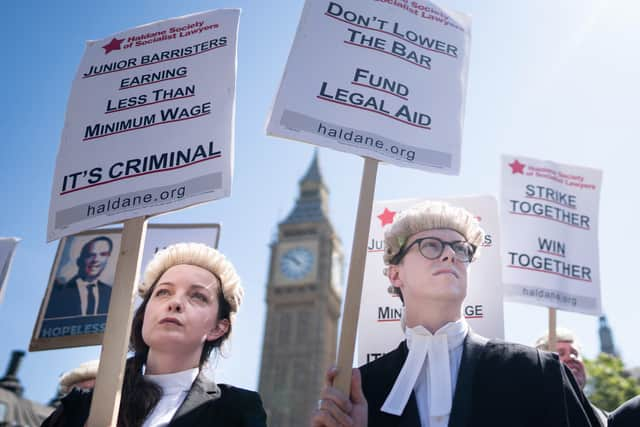

What was the barristers strike 2022 about?
Much of the row centred on pay for legal aid work, which the government directly controls. Barristers called for an immediate 15% fee rise so that they could tackle a courts backlog caused by the Covid-19 pandemic.
The government had granted a 15% increase from the end of September, meaning barristers would earn £7,000 more a year. But this proposed pay rise only applied to new cases, not those already sitting in the backlog.
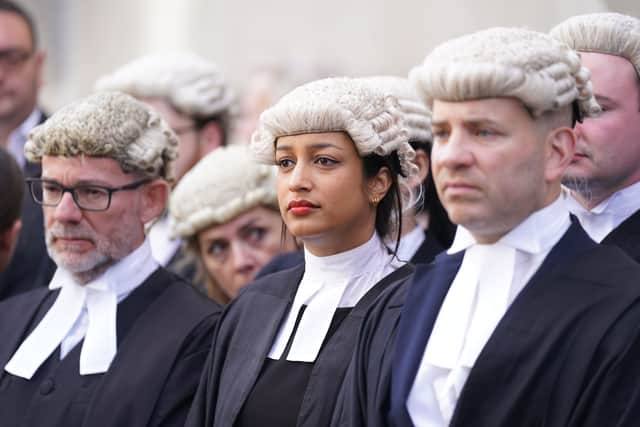

The CBA also called for an “effective pay review body” and for future fee increases to be linked to inflation. According to the latest Office for National Statistics (ONS) Consumer Prices Index (CPI), inflation hit 9.9% in August 2022 - a rate just below 40-year highs.
Advertisement
Hide AdAdvertisement
Hide AdCBA chairperson Kirsty Brimelow KC said her members’ demands were for less money than it costs the government for the courts to sit empty. “The effect (of the strike) will be that the courts continue to sit empty with trials and cases not being heard. It is a last-resort action,” she told BBC Breakfast.
“The remedy is for an injection of money into the backlog of cases, which currently stands at 60,000 cases, that barristers are working on that will cost the government only £1.1 million per month. Currently, it’s costing much more for the courts to sit empty.”
What ended the barristers strike 2022?
Barristers were asked to vote on whether to end strike action in the wake of fresh government proposals in a row over pay. Talks with new Justice Secretary Brandon Lewis saw a proposal to further reform government-set fees for legal aid advocacy work, the Ministry of Justice (MoJ) said. The offer represented “further investment of £54 million in the criminal bar and solicitors”, according to the MoJ.
There had been anger that a planned 15% fee rise barristers are due to receive from the end of September would only apply to new cases and not those already sitting in the Covid backlog. But now the MoJ has said its fee increase will apply to the “vast majority of cases currently in the crown court” as well as provide a pay rise for solicitors, with further measures due to be announced in the coming weeks.
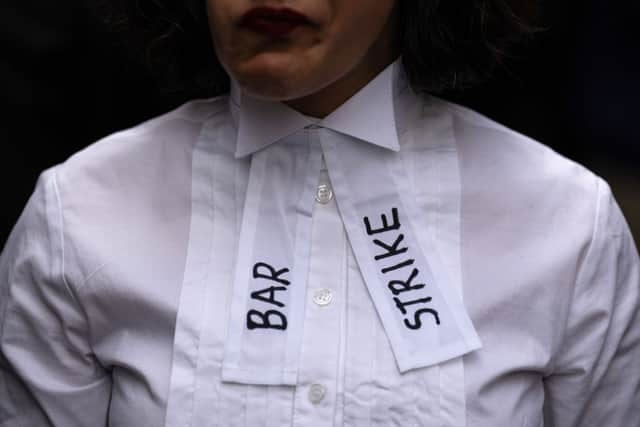

Advertisement
Hide AdAdvertisement
Hide AdIt comes despite an insistence from the government department that it had “repeatedly explained” to the CBA that backdating pay would necessitate a “fundamental change” to the legal fees system. It said changing this system would “cost a disproportionate amount of taxpayers’ money” and take a long time.
But now, the government is working to introduce changes to the digital system used to make payments. Officials are concerned the changes will be difficult and expensive, according to reporting by the PA news agency.
The new pay offer was made after the High Court ruled that delays to criminal trials as a result of the strike action would not be a good enough reason to keep defendants in custody should the dispute have lasted beyond the end of November 2022.
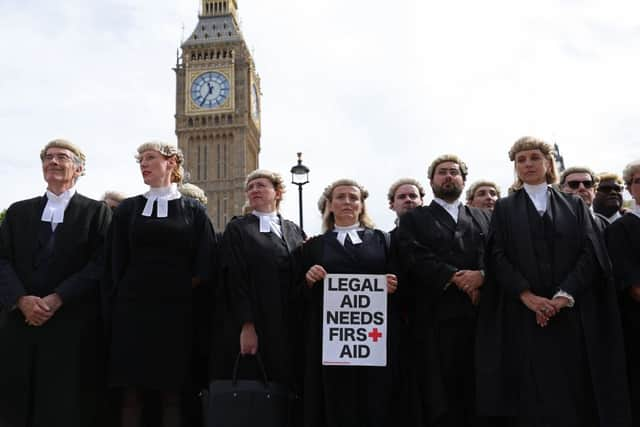

As well as the new pay offer, the government has also pledged to make £3 million available for “case preparation like written work and special preparation” and allocate £4 million to defence barristers involved in pre-recorded cross-examinations, used to reduce the trauma of a trial for vulnerable victims and witnesses.
Advertisement
Hide AdAdvertisement
Hide AdA £5 million-a-year rise for youth court fees from 2024/25 – which the department said is expected to benefit “both solicitors and some junior barristers” – has also been proposed.
The CBA put the offer to members in a ballot last week. On 10 October, it was announced 1,488 of 2,605 (57%) CBA members had voted to suspend strikes. Barristers will now accept new instructions on cases from 6pm on Monday (10 October) and will be back in court from Tuesday (11 October).
CBA chair Kirsty Brimelow said barristers had been “shabbily treated” by the government, but added that her organisation is now “hoping for a new relationship”.
“The offer from the Government is an overdue start. Its acceptance by barristers is on the basis that it is implemented. Otherwise, the CBA will ballot again to lift the suspension of action,” she said.
Advertisement
Hide AdAdvertisement
Hide Ad“Goodwill of criminal barristers is exhausted. The long-term reform does depend on continuing, constructive engagement with Government. Otherwise, our members remain ready to act again.”
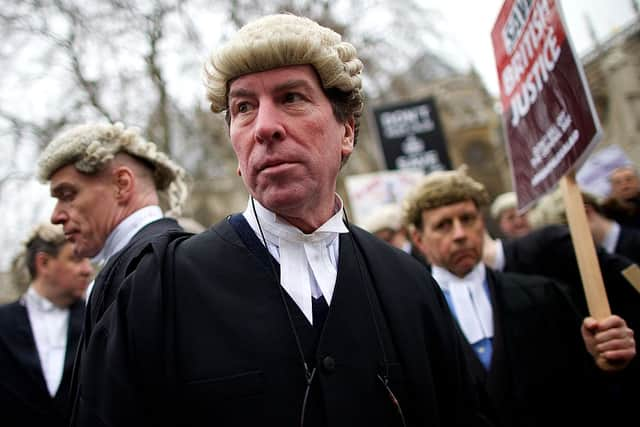

The strike action already taken by criminal barristers in England and Wales had a major impact on the courts system. According to MoJ figures, more than 6,000 court hearings were disrupted as a result of the dispute. Data released under freedom of information laws shows that over the course of the first 19 days of industrial action – between June 27 and August 5 – 6,235 court cases were disrupted, including 1,415 trials, across England and Wales.
Brandon Lewis said the news was a “breakthrough” and said he hoped it would be the beginning of a “constructive relationship” between his department and criminal barristers.
“My priority in these first few weeks as Lord Chancellor has been to end CBA strike action and reduce delays for victims, and I’m glad that barristers have now agreed to return to work,” he said.
Comment Guidelines
National World encourages reader discussion on our stories. User feedback, insights and back-and-forth exchanges add a rich layer of context to reporting. Please review our Community Guidelines before commenting.
